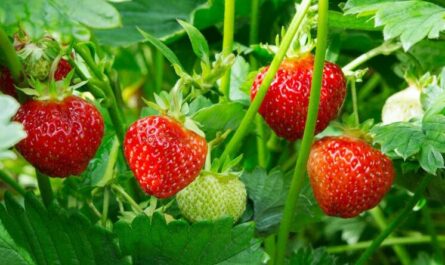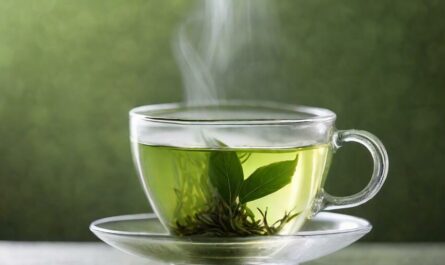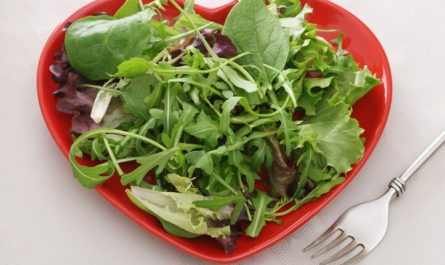Chia seeds have gained popularity in recent years as a superfood due to their numerous health benefits. These tiny seeds are packed with essential nutrients. This makes them a valuable addition to any diet. In this article, we will explore 18 proven health benefits of chia seeds, backed by scientific research. From aiding in weight loss to promoting heart health, these little powerhouses offer various advantages for overall well-being. So, let’s dive in and discover why chia seeds are considered a nutritional powerhouse.
What are Chia Seeds?
Chia seeds are small edible seeds that come from the plant Salvia hispanica. These seeds are native to Central and South America and have been used for centuries as a source of nutrition and energy. Chia seeds are oval-shaped and have a shiny, smooth texture. They are typically black or white, although there are also variations with a mix of both colors.
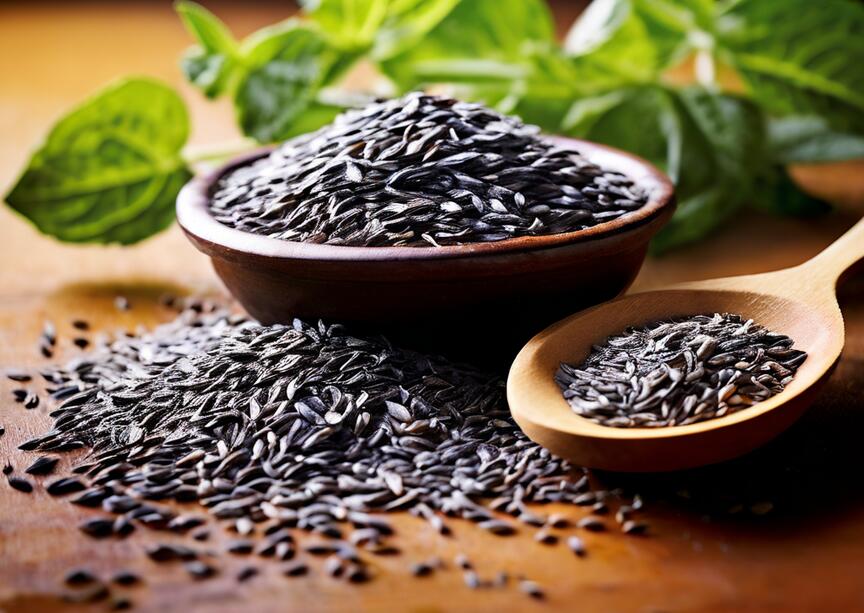
Chia Seeds Nutrition Facts
Chia seeds are highly nutritious and are considered a powerhouse of essential nutrients. Here are the key nutrition facts for a 1-ounce (28 grams) serving of chia seeds:
- Calories: 138
- Protein: 4.7 grams
- Fat: 8.7 grams (including 0.6 grams of saturated fat)
- Carbohydrates: 12.3 grams (including 10.6 grams of fiber)
- Sugar: 0 grams
- Calcium: 177 milligrams
- Iron: 2.2 milligrams
- Magnesium: 95 milligrams
- Phosphorus: 180 milligrams
- Potassium: 115 milligrams
- Omega-3 fatty acids: 4.9 grams
- Omega-6 fatty acids: 1.6 grams
- Vitamin C: 0 milligrams
- Vitamin A: 0 international units
- Vitamin E: 0.3 milligrams
Chia seeds are an excellent source of fiber, with one serving providing over 40% of the recommended daily intake. They are also a good source of protein, healthy fats, and various minerals.
18 Proven Health Benefits of Chia Seeds
Here are 18 proven reasons to start incorporating chia seeds into your diet:
1. Excellent Source of Nutrients
Despite their tiny size, chia seeds are one of the most nutritious foods on the planet. Just a single ounce (28 grams) contains:
- Fiber: 11 grams (44% of the RDI)
- Protein: 4.7 grams
- Fat: 9 grams (5 of which are omega-3s)
- Calcium: 18% of the RDI
- Manganese: 30% of the RDI
- Magnesium: 30% of the RDI
- Phosphorus: 27% of the RDI
They also contain decent amounts of zinc, vitamin B3, potassium, vitamin B1, and vitamin B2. With such an impressive nutrient profile, chia seeds are an easy way to boost your intake of fiber, protein, and healthy fats.
2. Rich in Antioxidants
In addition to being nutrient-dense, chia seeds are packed with antioxidants that help protect the body from free radicals, aging, and cancer. The main antioxidants in chia seeds are:
- Chlorogenic acid
- Caffeic acid
- Myricetin
- Quercetin
- Kaempferol
Antioxidants are important for overall health as they fight inflammation and reduce the risk of chronic diseases like heart disease. The antioxidants also give chia seeds a long shelf life by preventing the fats from going rancid.
3. May Support Weight Loss
Chia seeds are often promoted as a weight loss aid due to their high protein and fiber content. The fiber in chia seeds is primarily soluble fiber, which absorbs large amounts of water to form a gel-like substance in the stomach.
This gel moves slowly through the digestive tract, promoting feelings of fullness and reducing appetite and food intake. The protein in chia seeds may also help reduce appetite by regulating hunger hormones.
Several studies have found that eating chia seeds can increase feelings of fullness and reduce calorie intake. This could aid in weight loss over time.
4. Loaded With Omega-3s
One of the biggest benefits of chia seeds is their high content of omega-3 fatty acids, particularly alpha-linolenic acid (ALA). Chia seeds contain more omega-3s than any other plant food.
Omega-3s are essential fatty acids that must be obtained through the diet. They offer numerous health benefits, including reducing inflammation, lowering heart disease risk, and supporting brain health.
While ALA isn’t as potent as the omega-3s EPA and DHA found in fish oil, some ALA can be converted into these more active forms in the body. Eating chia seeds is an easy way to boost your overall omega-3 intake.
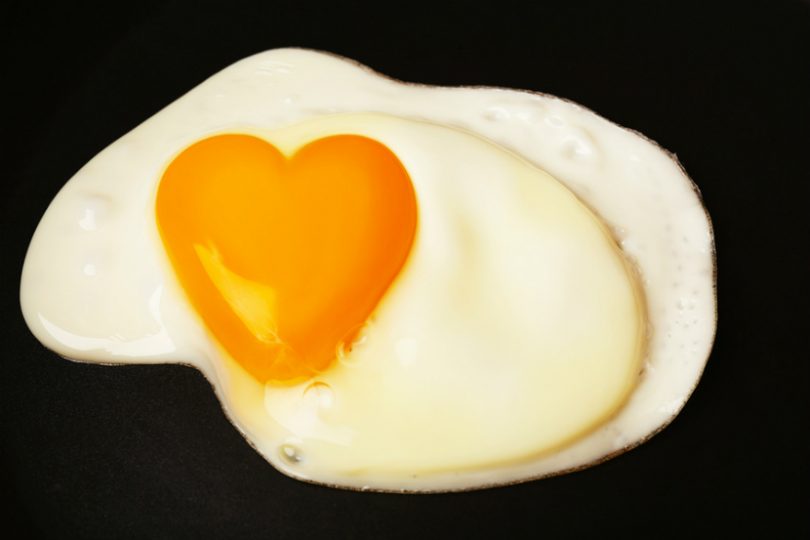
5. May Reduce Heart Disease Risk
Thanks to their fiber, protein, and omega-3 content, chia seeds may help reduce several key risk factors for heart disease.
The soluble fiber in chia seeds can help lower LDL (bad) cholesterol levels, a major risk factor for heart disease. The omega-3 ALA has also can help reduce cholesterol, triglycerides, and blood pressure levels.
Multiple studies have found that eating chia seeds can improve various markers of heart health. This includes reducing visceral adipose tissue (belly fat), lowering triglycerides and LDL cholesterol, and raising HDL (good) cholesterol.
6. May Stabilize Blood Sugar
The combination of fiber, protein, and healthy fats in chia seeds may help stabilize blood sugar levels after meals. This is especially beneficial for people with type 2 diabetes or metabolic conditions.
Several studies have found that bread made with chia seeds has a lower glycemic response compared to regular bread. This means it causes a slower rise in blood sugar levels. The fiber in the chia may also improve insulin sensitivity. This allows cells to use glucose more efficiently.
For people with diabetes or insulin resistance, adding chia seeds to meals could help better manage blood sugar spikes and reduce the risk of complications.
7. High in Bone-Building Minerals
Chia seeds are an excellent source of several nutrients that are vital for bone health, including calcium, magnesium, phosphorus, and protein.
Just one ounce of chia seeds provides 18% of the recommended daily intake of calcium. They are also a good source of phosphorus, manganese, and protein – all of which play key roles in bone metabolism and maintenance.
Some research suggests the combination of nutrients in chia seeds may be more effective for bone health than calcium alone. Eating chia seeds regularly could help reduce the risk of osteoporosis, especially in older women.
8. May Reduce Inflammation
Chronic inflammation is at the root of many diseases, including cancer, heart disease, diabetes, and autoimmune conditions. The antioxidants, omega-3s, and plant compounds in chia seeds may help reduce inflammation in the body.
In particular, the antioxidants quercetin and caffeic acid found in chia seeds have potent anti-inflammatory effects. They can inhibit inflammatory enzymes, reduce oxidative stress, and prevent the overproduction of inflammatory molecules. Regularly consuming chia seeds may help lower inflammatory markers and protect against chronic inflammatory diseases.
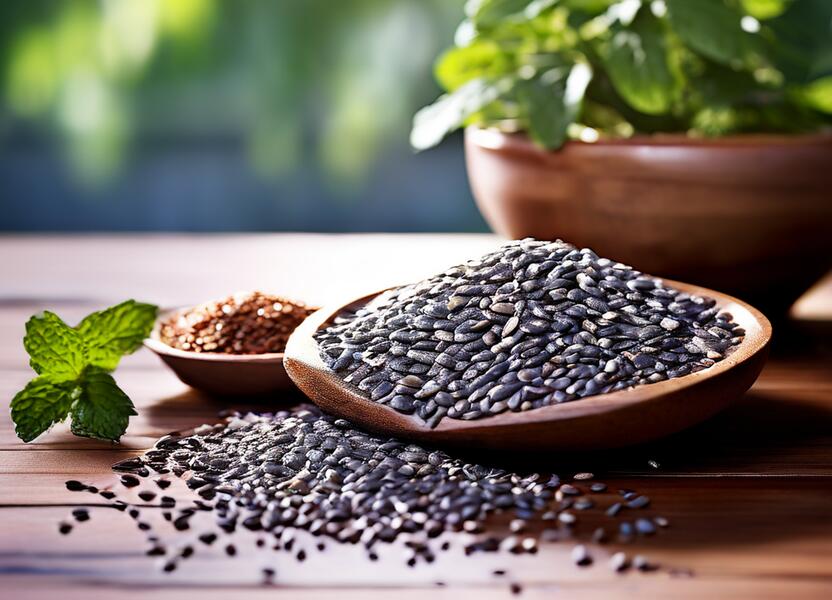
9. Easy to Incorporate Into Your Diet
One of the best things about chia seeds is their versatility. They have a mild, nutty flavor that goes well with both sweet and savory dishes.
Chia seeds can be eaten raw, soaked in liquid to form a gel, ground into flour, or added to baked goods, smoothies, cereals, yogurt, and more. Their ability to absorb liquid also makes them useful as an egg replacer in vegan baking. With so many ways to enjoy them, chia seeds are an easy ingredient to incorporate into a healthy diet.
10. Gluten-Free and Grain-Free
For those following a gluten-free, grain-free, or low-carb diet, chia seeds are an excellent addition. They are naturally gluten-free, grain-free, and low in carbohydrates while being high in fiber, protein, and healthy fats.
Chia seeds offer a nutrient-dense alternative to grains for people with celiac disease, gluten intolerance, or those simply looking to reduce their grain intake. They are also usually grown organically without pesticides or genetic modification.
11. May Promote Regularity
With nearly 10 grams of fiber per ounce, chia seeds are an excellent way to boost your daily fiber intake for better digestive health.
The soluble fiber in chia seeds absorbs water. This will form a gel-like substance that adds bulk to stool and helps food move smoothly through the digestive tract. This can help relieve constipation and promote regularity.
The fiber in chia seeds may also help feed the beneficial gut bacteria that produce short-chain fatty acids. This can nourish the cells lining the colon and reduce inflammation in the gut.

12. May Improve Skin Health
The nutrients in chia seeds, including omega-3s, antioxidants, and minerals like zinc, may offer benefits for skin health.
The omega-3 fatty acids in chia seeds are essential for maintaining healthy cell membranes, which can improve skin hydration and elasticity. The antioxidants protect the skin from damage caused by free radicals, sun exposure, and environmental pollutants.
Zinc is also important for skin health, as it helps regulate oil production, heal wounds, and prevent acne. Some people even use chia seed oil topically as a natural moisturizer.
13. May Boost Exercise Performance
Chia seeds are sometimes used as a carb-loading strategy by athletes and endurance runners to maximize glycogen storage and improve performance.
The combination of protein, fiber, and healthy fats in chia seeds provides a steady source of energy that can help fuel your workouts and keep you feeling fuller for longer.
The omega-3s may also help reduce exercise-induced inflammation and muscle soreness. One study found that consuming a drink containing chia seeds enhanced exercise performance for workouts.
14. May Help Fight Cancer
Some test-tube and animal studies suggest that chia seeds have anti-cancer properties, particularly against breast and cervical cancer cells. The ALA found in chia seeds is thought to be the main cancer-fighting ingredient.
One study showed that ALA limited the growth and spread of both breast and cervical cancer cells. The antioxidants in chia seeds may also help protect against cancer by reducing inflammation and oxidative stress in the body.
While this research is promising, more studies are needed to determine the effectiveness of chia seeds in fighting cancer in humans. However, adding chia seeds to an overall healthy, plant-based diet could be a smart choice for reducing cancer risk.
15. May Reduce Symptoms of PMS and Menopause
The high levels of omega-3s, antioxidants, and minerals like magnesium and calcium in chia seeds may help reduce symptoms associated with PMS and menopause in women.
Omega-3s can help balance hormones and reduce inflammation, which may alleviate cramps, headaches, bloating, and mood swings during PMS. The calcium and magnesium in chia seeds are important for bone health and preventing osteoporosis during menopause.
The antioxidants can also help protect against oxidative stress. This can increase during menopause due to declining estrogen levels. This oxidative stress can contribute to hot flashes, night sweats, and other menopausal symptoms.
While more research is still needed, some women report relief from PMS and menopausal symptoms after adding chia seeds to their diet. The seeds may be especially helpful when combined with other hormone-balancing foods and lifestyle changes.
16. May Improve Dental Health
The calcium, phosphorus, vitamin A, and zinc in chia seeds are important for maintaining healthy teeth and gums. Calcium is essential for strong bones and teeth, while zinc prevents tartar by keeping plaque from mineralizing onto your teeth.
Vitamin A is needed for the formation of tooth enamel, the hard outer layer that protects teeth from decay. Phosphorus works together with calcium to strengthen tooth enamel as well.
Incorporating chia seeds into your diet could help keep your smile bright and healthy. The anti-inflammatory properties of chia seeds may also help reduce gum inflammation and prevent periodontal disease.
17. May Improve Sleep Quality
While research is limited, some studies suggest that chia seeds may help promote better sleep due to their high content of tryptophan and omega-3s.
Tryptophan is an amino acid that raises levels of serotonin and melatonin, the “sleep hormone” that regulates your body’s circadian rhythms. Chia seeds are a good plant-based source of tryptophan.
The omega-3 ALA in chia seeds may also improve sleep quality by increasing levels of sleep-promoting substances. For people who struggle with insomnia or poor sleep, adding chia seeds to your diet may be a natural way to enhance sleep duration and quality.
18. May Support Healthy Aging
With their impressive array of nutrients and health benefits, chia seeds may be a powerful food for promoting healthy aging.
The antioxidants in chia seeds can help protect cells from damage and premature aging caused by free radicals. The fiber supports healthy digestion and detoxification as you age.
Chia seeds are also rich in bone-building nutrients like calcium, magnesium, and phosphorus which are essential for maintaining strong bones and preventing osteoporosis. The omega-3s may help reduce inflammation and protect against age-related cognitive decline as well.
By incorporating nutrient-dense chia seeds into your diet, you can help give your body the tools it needs to age gracefully from the inside out.

How to Eat Chia Seeds?
To maximize the potential health benefits, it’s best to eat chia seeds that have been soaked or ground, rather than eating them whole. Soaking chia seeds in liquid softens them and creates a gel-like consistency that is easier to digest.
To make chia gel, mix 1/3 cup of chia seeds with 2 cups of water, milk, or non-dairy milk alternative and let it sit for 10-15 minutes. The seeds will absorb the liquid and form a gel that can be eaten on its own or added to smoothies, oatmeal, yogurt, or baked goods.
You can also grind chia seeds in a coffee grinder, blender, or food processor to break down the hard outer shells before eating them. Ground chia powder can be used in pancake batter, energy balls, or sprinkled on top of salads, cereals, or soups.
It’s generally recommended to eat about 20 grams (about 1.5 tablespoons) of chia seeds twice per day to get the full nutritional benefits. Remember to drink plenty of water when eating chia seeds, as they can absorb 10-12 times their weight in liquid and may cause dehydration or digestive issues if not consumed with enough fluids.
Side Effects of Chia Seeds
While chia seeds are generally safe to consume for most people, there are a few potential side effects to be aware of. It’s important to note that these side effects are relatively rare and typically occur when chia seeds are consumed in excessive amounts or not properly prepared. Here are some potential side effects of chia seeds:
1. Digestive issues
Chia seeds are high in fiber, and consuming large quantities without adequate hydration can lead to digestive discomfort such as bloating, gas, or constipation. It’s essential to drink plenty of water when consuming chia seeds to help prevent these issues.
2. Allergic reactions
Although rare, some individuals may be allergic to chia seeds. Allergic reactions can manifest as skin rashes, hives, itching, or difficulty breathing. If you experience any allergic symptoms after consuming chia seeds, it is advisable to seek medical attention.
3. Blood thinning effect
Chia seeds contain omega-3 fatty acids, which possess mild blood-thinning properties. While this can be beneficial for heart health, taking blood-thinning medications or with bleeding disorders should exercise caution. You should consult with a healthcare professional before consuming chia seeds in large amounts.
4. Interference with medication absorption
Chia seeds can absorb liquid and form a gel-like substance. In some cases, this gel can potentially interfere with the absorption of certain medications or supplements. You’d better take medications and supplements at least one hour before or two hours after consuming chia seeds.
5. Low blood pressure
Chia seeds may have a slight blood pressure-lowering effect due to their high content of omega-3 fatty acids. While this can be beneficial for individuals with hypertension, those with low blood pressure should monitor their levels and consult with a healthcare professional before consuming chia seeds.


